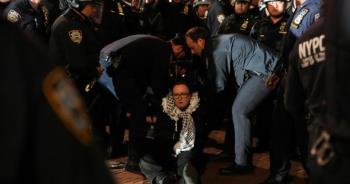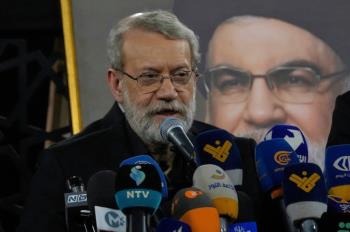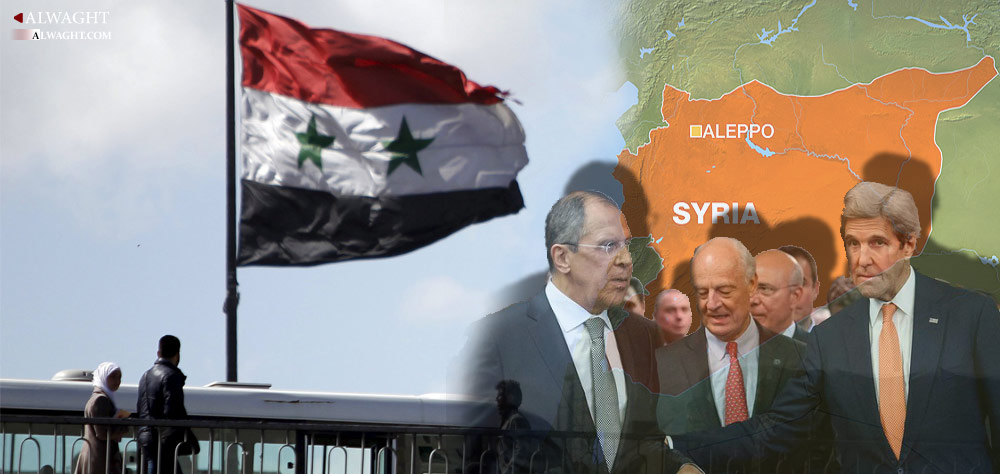Alwaght- Over the recent weeks, the Syrian government’s forces in association with their allies have made very considerable advances in militant-held part of Aleppo.
Perhaps the frequent demands for immediate ceasefire, halting the military operations, or calls for meetings with the Russian and Iranian officials, two staunch backers of the Syrian government, by the Arab and Western officials and European figures like the High Representative of the European Union for Foreign Affairs and Security Policy Federica Mogherini are clearly indicative of how significant the Aleppo battlefield developments are.
As the operations go on against the terrorists in Aleppo, the Russian Foreign Minister Sergey Lavrov met the US Secretary of State John Kerry on Saturday to discuss Syria, and particularly Aleppo, developments. Although following the meeting Russia's Lavrov came out saying that his American counterpart presented some proposals for relaxing the crisis in Syria, and Aleppo in particular, that could be approved by Moscow, there are serious doubts about the capability of the current US administration to introduce positive and real changes to the Syrian conflict while its term is coming to an end.
Before the US-Russian meeting, the news reports said that each side will have two requests from the other. The Russian request from the US asks Washington to draw distinct lines between the terrorist and non-terrorist groups in compliance with the UN Resolution 2254. Actually, Moscow wants Washington to practically recognize Jabhat Fateh al-Sham (formerly al-Nusra Front) as a terrorist group and moreover consider implementation of other provisions of the Resolution 2254. Another demand by Russia, Syria, and other pro-Damascus parties is that the opposite side controls and shuts down Syrian-Turkish borders to block passage of anti-Syrian militant forces and their military support. On the other side, the media speculations suggested that Kerry demands could include ending the Aleppo encirclement, setting in motion a truce across Aleppo, and also allowing the opposition and terrorist groups to leave the encircled areas under their control.
According to the reports coming from the meeting, the two sides expressed hope to continue this political approach because once it succeeds, it will be considered a positive step forward. The reports also added that Lavrov and Kerry set to have another Syria-related meeting on Wednesday. However, it is unlikely that a major development happens in the way of settlement of the Syrian crisis during the negotiations in the upcoming days because the Obama term in office is nearing its end and also because Donald Trump's policy on Syria is yet to be clears. However, there could be some temporary and tactical Russian-American cooperation, but they are far from taking a influential step to push ahead the Resolution 2254 on Syria or broker an intra-Syrian peace dialogue, majorly due the post-election domestic American conditions.
A couple of points need to be mentioned concerning the battleground developments and the Syrian army’s progresses in Aleppo:
The First point is that Turkey is pressing ahead with its military campaign, dubbed Operation Euphrates Shield, in northern Syria next to the east of Euphrates River. In the initial days, it was thought that the Turkish operation follows some limited objectives, but in recent weeks it turned out that the Turkish forces aim at drawing close to Aleppo. In past few days, however, the way of Turkish forces' advances was blocked by Damascus and its allies. This is an important development in the Syrian front lines.
The second point is closure of way of escape of ISIS terrorist group forces from Iraq’s Mosul to the neighboring Syria. Based on the previous experiences, the Iraqi and Syrian security conditions are tightly interwoven. Without stabilizing the conditions in Syria it is impossible to get things right in Iraq, and vice versa. Meanwhile, the very significant event in the anti-ISIS Mosul battle that very much helped the Syrian fronts was that the Iraqi government forces along with the Public Mobilization Forces (PMF) have cut off way of ISIS fighters' transfer from Mosul to Syria as the operation in the northern Iraqi city heats up. This is counted another big development for the battlegrounds of Syria.
The third point which is significant out of the battlefield and inside the politics is that the US finally and after holding its presidential election and Donald Trump's victory blacklisted Jabhat Fateh al-Sham as a terrorist group. Although this is not an adequate move, it is a positive step towards helping the chaotic Syrian conditions to stabilize. More time is needed to see if Washington applies this shift of stance on the terrorist group on the ground or not.
The forth point is that since the day the four-member Russia, Iran, Iraq, and Syria military coalition was announced, more than a year ago, it has followed a triangular plan, in politics, international attempts, and most effectively anti-terror military campaign. Actually, the coalition did not merely follow military solution; rather it believed that bringing peace and stability to Syria was not possible without resorting to political settlement as part of road map that eyedimplementation of Resolution 2254. Meanwhile, the Aleppo field changes can make the political negotiations between Moscow and Washington even more serious. In fact, they can bring back to the negotiating table the sides that always try to evade real dialogue on the crisis to help find a comprehensive solution for the Syrian conflict.



























